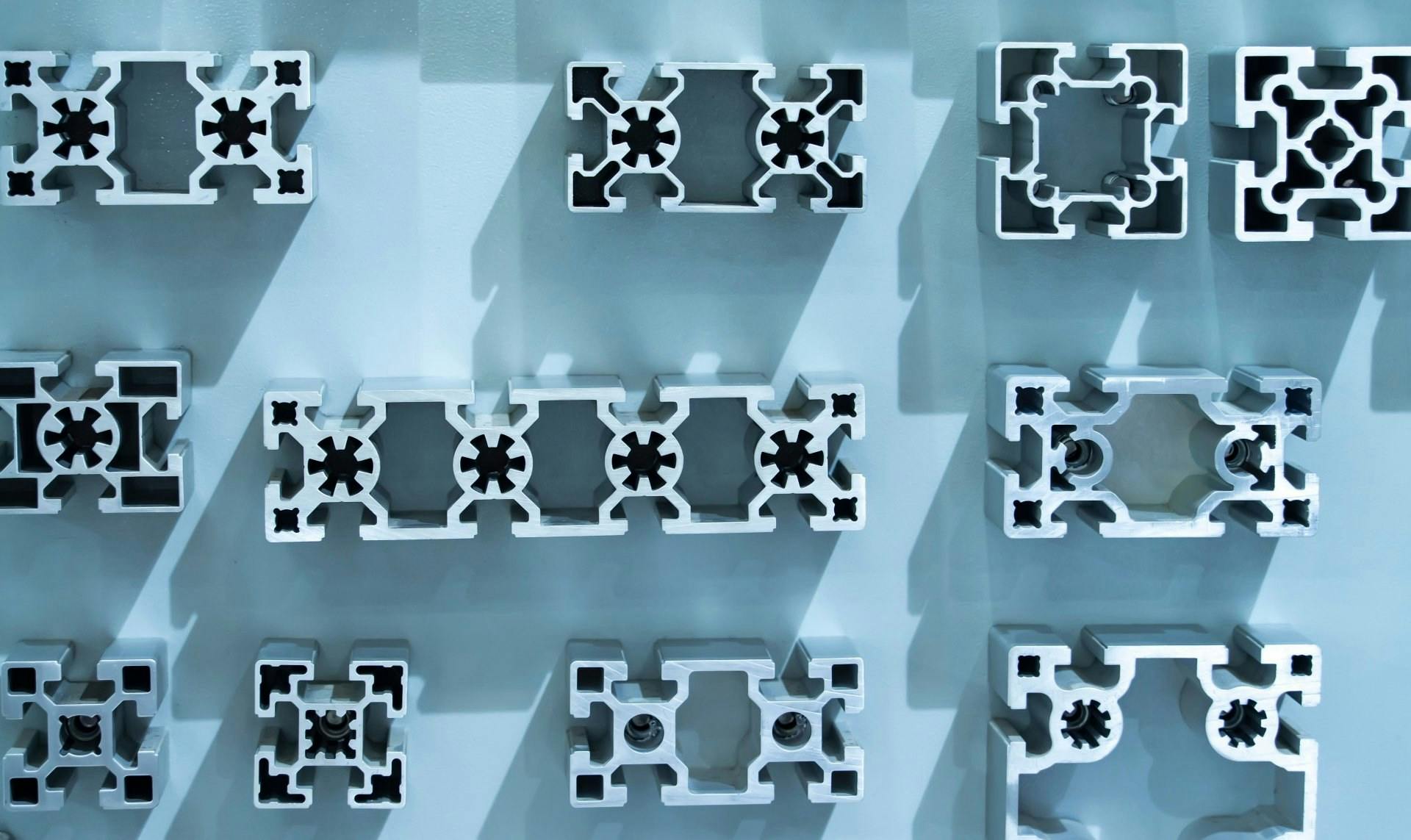Aluminium extrusions have become a cornerstone in many fields, but the manufacturing of domestic appliances is perhaps where they are unsung heroes. Offering a blend of cost-effectiveness, durability, and versatility aluminium extrusions are to be found in all sorts of household white goods.
Cost-Effectiveness
One of the primary reasons aluminium extrusions are widely used in domestic appliances is their cost-effectiveness. Aluminium is abundant and relatively inexpensive compared to other metals, making it an economical choice for manufacturers. The extrusion process itself is also highly efficient, allowing for the creation of complex shapes and profiles with minimal waste. This efficiency translates to lower production costs, which can be passed on to consumers in the form of more affordable appliances.
Moreover, aluminium extrusions can be produced in large quantities with high precision, reducing the need for additional machining and finishing processes. This not only saves time but also reduces labour costs. The ability to create custom profiles means that manufacturers can design components that fit perfectly into their appliances, further enhancing efficiency and reducing material waste.
Corrosion Resistance
Another significant advantage of aluminium extrusions is their excellent corrosion resistance. Aluminium naturally forms a thin oxide layer when exposed to air, a trait it retains when alloyed with other metals. This film protects the extrusion from further oxidation and corrosion. This makes aluminium an ideal material for appliances that are frequently exposed to moisture, such as refrigerators, washing machines, and dishwashers.
The corrosion resistance of aluminium ensures that appliances remain functional and aesthetically pleasing over time. This longevity is a key selling point for consumers, who are increasingly looking for durable and reliable products. Additionally, the maintenance requirements for aluminium components are minimal, which further enhances their appeal.
Lightweight and Strong
Aluminium extrusions offer an impressive strength-to-weight ratio, making them both lightweight and strong. This is particularly beneficial in the design of domestic appliances, where reducing weight can improve energy efficiency and ease of use. For example, lighter components can reduce the overall weight of an appliance, making it easier to move and install and even factors into keeping transportation and storage costs between the manufacturer and end user.
Despite being lightweight, aluminium extrusions do not compromise on strength. They can withstand significant stress and strain, ensuring that appliances remain robust and durable. This combination of lightness and strength is particularly advantageous in appliances that require both mobility and durability, such as vacuum cleaners and portable air conditioners.
Thermal Conductivity
Aluminium is an excellent conductor of heat, which is another reason it is used in domestic appliances. This property is particularly useful in appliances that generate heat, such as ovens, toasters, and radiators. Aluminium extrusions can efficiently dissipate heat which is why it’s used for heatsinks. This helps in preventing overheating and improving the overall performance and safety of the appliance.
The thermal conductivity of aluminium also contributes to energy efficiency. By effectively managing heat, aluminium components can help appliances operate more efficiently, reducing energy consumption and lowering utility bills for consumers.
Design Flexibility
The extrusion process allows for design flexibility, enabling manufacturers to create intricate and customised profiles. This flexibility is crucial in the competitive market of domestic appliances, where innovation and unique designs can set a product apart. Aluminium extrusions can be tailored to meet specific design requirements, allowing for the integration of various features and functionalities.
This design versatility also extends to the aesthetic appeal of appliances. Aluminium can be easily finished with various coatings and treatments, providing a sleek and modern look that appeals to consumers. Whether it’s a brushed finish for a contemporary kitchen appliance or a polished look for a high-end product, aluminium extrusions can be customised to match the desired aesthetic.
Sustainability
Finally, aluminium is a highly sustainable material. It is 100% recyclable without losing its properties, making it an environmentally friendly choice. The recycling process requires only a fraction of the energy needed to produce new aluminium, reducing the overall carbon footprint. This sustainability is increasingly important to consumers who are conscious of their environmental impact and prefer products that align with their values.
In conclusion, aluminium extrusions offer a multitude of benefits for domestic appliances, from cost-effectiveness and corrosion resistance to design flexibility and sustainability. These advantages make aluminium an ideal material for manufacturers looking to produce high-quality, durable, and innovative appliances that meet the demands of modern consumers.
